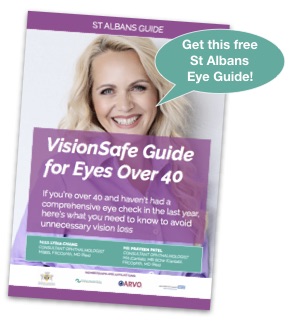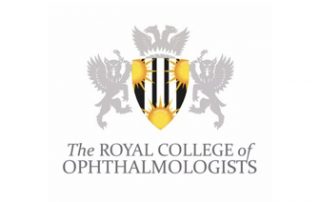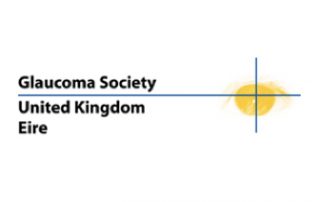Are you over 40 and haven’t had a comprehensive eye check done in the last year? A VisionSafe Eye Check can spot cataracts to see if you need cataract surgery
Cataract surgery overview
The cataract surgery operation involves an eye surgeon replacing the misty natural lens (cataract) with an artificial lens called an intraocular lens (IOL). Ophthalmologists perform about 30,000 cataract operations annually in the UK alone. If you are concerned that you have a cataract, you’re welcome to visit us for a VisionSafe Eye Check to get a diagnosis.
How does cataract surgery help you?
Cataract surgery will improve your vision as long as you do not have any other ocular conditions affecting your vision. To learn more about how cataract surgery works, see below.
How to spot cataracts early

How do you know that cataract surgery is the right solution?
Once you have an eye assessment, including a clinical history & eye examination, along with any appropriate tests, your eye consultant will be able to determine whether you will benefit from cataract surgery.
Our Patients Say…

“Extremely personable and reassuring. Knowledgeable. Explained options.Successful treatment so far.”

“Most attentive and sympathetic to a patient as well as explaining carefully any procedures.”

“Brilliant! Highly recommend.”

“Very professional yet personal and friendly. Calm & reassuring environment and personal at all levels.”

“Dr Patel explained everything clearly and carefully. No feeling of rush or push to have more procedures. Very friendly & charming reception throughout the clinic.”

“Thank you to Dr P for recommending me. I travelled from Kent and it was an extremely thorough consultation.”

“Everything well explained – great care & understanding. Would thoroughly recommend.”

“I was dealt with very professionally with great care to detail and treated with great kindness. Thank you.”

“I am impressed! You are very thorough.”

“Fuss-free and efficient. Friendly and reassuring.”

“This is an extremely well-run clinic and the staff are kind, understanding and efficient.”

“Very thorough examination & informative discussion.”
How does cataract surgery work?
Cataract surgery is a day case procedure. That is, cataract surgery is normally a procedure under local anaesthetic, meaning you can return home the evening after your surgery. Modern cataract surgery is a form of keyhole surgery in which the natural lens is removed through a 3.5mm (and sometimes smaller) valve incision. 3.5mm is less than the width of your little finger nail. High-frequency ultrasound energy is delivered through a probe which is used to break apart and liquefy the cloudy natural lens. This is a process called phacoemulsification. Once the original lens material is broken down, it is washed out of the eye. Now a flexible new lens can be folded up in order to be gently delivered into the eye, through that small 3.5mm incision. Once inside the eye, the new lens is unfolded within the eye, and positioned to lie in the same natural position as the original lens so that it can focus light accurately on the retina. The small incision used in modern cataract surgery is almost always self-sealing i.e. no stitches are required, and your eye heals quickly.
Latest news
We regularly share new videos and blog posts for our St Albans patients about common eye questions and concerns. You can subscribe at the bottom of this page to receive the latest updates.
Vision loss after 40: A VisionSafe Eye Check might catch signs of AMD, glaucoma, macular or retinal conditions.
Vision loss after the age of 40 is common, and there are several reasons this happens. One of the most prevalent reasons is an age-related change in our focusing which means we are not able to read small print easily without glasses (also known as presbyopia). However, there are more serious eye conditions which can lead to irreversible vision loss if not detected at an early stage.
What is macular degeneration?
AMD is a condition which affects the retina, the light-sensitive membrane at the back of the eye. As we get older, we develop an accumulation of waste material underneath the retina. This accumulation can affect the function of the light-sensitive cells.
What is glaucoma treatment and how does glaucoma treatment work?
There are different types of glaucoma treatments. The mainstay of glaucoma treatments is to reduce intraocular (eye) pressure to slow down or stop the disease from worsening.
Memberships and affiliations
Our Consultant Ophthalmologists love to stay on top of the latest in eye treatment options for patients through regular industry meetings, journals and research.
Request a Call Back
Whether you’d like to book a VisionSafe Eye Check, or discover your eye treatment options, give us a call on: 01727 227 013 or request a call back below:










